Top Violent Conflicts to Monitor in 2018
Recommendations for the Development of the Tourism Sector in Georgia
Top Risks of 2018 for the International System
Russian Posturing in a Post-ISIL Middle East
F-35 Lightning: Projecting Futuristic Aerial Warfare
Nascent Powers in the Era of Globalization
Natural Resource and Conflict in the Middle East Kurdish Regions
Natural Resources and Conflict in Iraq
Quantifying Risk in the Persian Gulf Petroleum Sectors
The Destruction of ISIL and Future Trends of Terrorism
Perception and Legitimacy in Conflict Settings
Ivory and Resource Nationalism
Chokepoints: Strategic Geography and Energy Security (IV) - The Bering Strait
The Persianate World and Dynamic Ambition
Resource Nationalism and Technology
Chokepoints: Strategic Geography and Energy Security (III) - The Bab-el-Mandeb
Education Economics and Fundamentalism
Iran After Akbar Hashemi Rafsanjani
The Second Siege of ISIL
Location: Al Hawai Tower
More Info: Palmyra Memorial Lecture Series
Event Date: Jan 8, 2017
Organization: Global Risk Intelligence
Russian Economic Forecasts and Central Asia Implications
Iraq and the Shaping of Religious Relations After ISIL
Location: Al Hawai Tower
More Info: Nineveh Memorial Lecture Series
Event Date: Dec 25, 2016
Organization: Global Risk Intelligence
Energy Relations Across the New Silk Road
Dehumanization Since the Great War
Chokepoints: Strategic Geography and Energy Security (ii)
Chokepoints: Strategic Geography and Energy Security (i)
Future Trends of Ballistic Missile Defence Systems in the Persian Gulf
The Future of State Wealth in the United Arab Emirates
Throughout the millennia the Persian Gulf region has experienced extensive migration with diverse ethnicities, cultures, and religions. Notably, major migratory movements between Arabs and Iranians across the waterway have dominated the history of the area. Integration and accommodation of new inhabitants into preexisting communities can prove challenging for multinational states, particularly with many of the member states from the Gulf Cooperation Council (GCC). With the exception of Oman, the states of Bahrain, Kuwait, Qatar, Saudi Arabia, and the United Arab Emirates (UAE) are temporally new countries to the international system and have had challenges in accommodating multinational societies. In the case of the UAE the state sponsored Emiratization program is one of the many tools implemented by the country in an attempt to create a unified ethnic, cultural, and national identity rather than address the multiethnic status that had already existed and was established in the area. Discrimination and further societal segregation of groups not deemed a part of the dominant national identity and state even more so convoluted the difficulties in potentially resolving the issue. As a result of state-promoted nationalistic movements the subjects of state wealth, distribution of resources, citizenship, and nationality are becoming themes of increasing importance in the Emirates especially when considering the future of the country. With the economic progression of the state and the imminent World Expo hosted by the emirate of Dubai in 2020, integration of multiethnic groups to a cohesive and balanced national identity without the erosion or exclusion of other groups that have historically inhabited the region seems unrealistic forecasting. Consequently, understanding the facets comprising the situation provides insight to the future of state wealth and its relationship with migrant communities as well as nationalism is vital. Sovereign Wealth Funds, the Emiratization program, as well as the many communities within the UAE will be covered to address the topic.
Location: University of Edinburgh
More Info: Identity, Nations, and Nationalism in a Changing World
Event Date: May 22, 2014
Organization: Ethnicity, Nationalism, and National Identity Network
Central Asian Energy Security
The Future Evolution of Warfare
Prospects of Resource Nationalism in Namibia
Location: London
More Info: The Hirouy Kidane Blue Nile Memorial Lecture Series
Event Date: Mar 2014
Organization: Global Risk Intelligence
Resource Nationalism as Interstate Warfare
Location: University of Nottingham
More Info: Understanding Change in Contemporary Conflict
Event Date: Mar 8, 2014
Organization: Centre for the Study of Conflict, Security and Terrorism
GCC-Central Asian Relations
Nuclearization of the Persian Gulf
Location: Durham University
More Info: The Politics of Nuclear Weapons and Non-Proliferation
Event Date: Feb 21, 2013
The Global Competition for Rare Earth
Political Religion in Central Asia
Location: Durham University
More Info: School of Government and International Affairs
Event Date: Nov 2012
Resource Nationalism in the Caspian Sea: Azerbaijan and Kazakhstan
Mineral Security in the Caucasus
Conflict and Security in the Caucasus: Regional Impact and Implications
Location: Durham University
More Info: School of Government and International Affairs
Event Date: Oct 2012
Iranian Naval Strategies in the Persian Gulf
Location: Durham University
More Info: School of Government and International Affairs
Event Date: Sep 2012
Morality and Mercenaries: Ethics in the Private Military Sector
Location: Durham University
More Info: School of Government and International Affairs
Event Date: Dec 2011
Asymmetric Warfare in Afghanistan
Location: Durham University
More Info: School of Government and International Affairs
Event Date: Nov 2011


 ORCID
ORCID